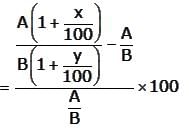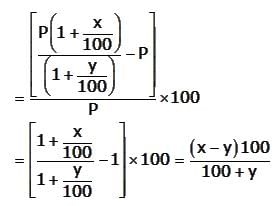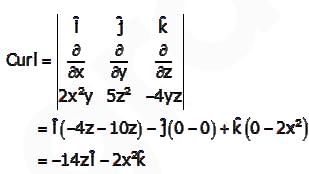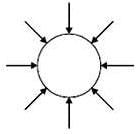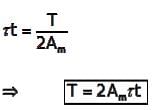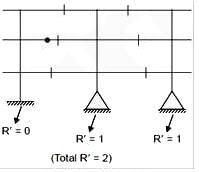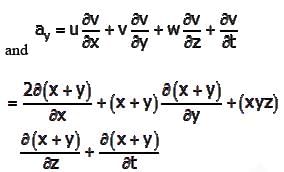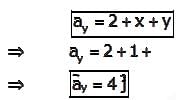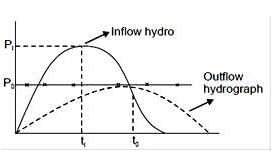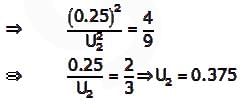Practice Test: Gate Civil Engineering(CE) 2019 Paper: (Session II) - GATE MCQ
30 Questions MCQ Test - Practice Test: Gate Civil Engineering(CE) 2019 Paper: (Session II)
Daytime temperature in Delhi can ______ 40°C
The growth rate of ABC Motors in 2017 was the same ________ XYZ Motors in 2016 .
| 1 Crore+ students have signed up on EduRev. Have you? Download the App |
Suresh wanted to lay a new carpet in his new mansion with an area of 70 × 55 sq. mts. However an area of 550 sq. mts had to be left out for flower pots. If the cost of carpet is Rs. 50 per sq. mts, how much money (in Rs.) will be spent by Suresh for the carpet now?
A retaining wall with measurements 30 m × 12 m × 6 m was constructed with bricks of dimensions 8 cm × 6 cm×6cm. If 60% of the wall consists of bricks used for the construction is ___________ lakhs.
Hima Das was _______ only Indian athlete to win _____________ gold for India.
Population of state X increased by x% and the population of state Y increased by y% from 2001 to 2011. Assume that x is greater than y. Let P be the ratio of the population of state X to state Y in a given year. The percentage increase in P from 2001 to 2011 is_____________
The Newspaper report that over 500 hectares of tribal land spread across 28 tribal settlements in Mohinitampuram forest division have already been “alienated’. A top forest official said, “First the tribals are duped out of their land holdings. Second, the families thus rendered landless are often forced to encroach further into the forests”.
On the basis of the information available in the paragraph, _______ is/are responsible for duping the tribals.
An oil tank can be filled by pipe X in 5 hours and pipe Y in 4 hours, each pump working on its own. When the oil tank is full and the drainage hole is open, the oil is drained in 20 hours.
If initially the tank was empty and someone started the two pumps together but left the drainage hole open, how many hours will it tak for the tank to be filled? (Assume that the rate of drainage is independent of the head)
Mohan, the manager, wants his four workers to work in pairs. No paper should work for more than 5 hours. Ram and Johan have worked together for 5 hours. Krishna and Amir have worked as a team for 2 hours. Krishan does not want to work with Ram whom should mohan allot to work with Johan, if we wants all the workers to continue working?
“Popular Hindi fiction, despite – or perhaps because of – its wide reach, often does not appear in our cinema. As ideals that viewers are meant to look up to rather than identify with, Hindi film protagonisits usually read books of apsirational value: textbooks, English books, or high value literature”.
Q. Which one of the following CANNOT be inferred from the paragraph above?
What is curl of the vector field 2x2yi + 5z2j - 4yzk?
Analysis of a water sample revealed that the sample contains the following species.

Q. Concentrations of which of the species will be required to compute alkalinity?
The value of the function f(x) is given at n distinct values of x and its value is to be interpolated at the point x* using all the n points. The estimate is obtained first by the Lagrange polynomial, denoted by IL, and then by the Newton polynomial, denoted by IN.
Q. Which one of the following statements is correct?
If the fineness modulus of a sample of the fine aggregates is 4.3, the mean size of the particles in the sample is between
The command area of a canal grows only one crop, i.e., wheat. The base period of wheat is 120 days and its total water requirement, Δ, is 40 cm. If the canal discharge is 2 m3/s, the area, in hectares, rounded off to the nearest integer, which could be irrigated (neglecting all losses) is ______________
The characteristic compressive strength of concrete required in a project is 25 MPa and standard deviation in the observed compressive strength expected at site is 4 MPa. The average compressive strength of cubes tested at different water-cement (w/c) ratios using the same material as is used for the project is given in the table.

The water-cement ratio (in percent, round off to the lower integer) to be used in the mix is________
A solid sphere of radius, r, and made of material with density ρs, is moving through the atmosphere (constant pressure, p) with a velocity, ν. The net force ONLY due to atmospheric pressure (Fp) acting on the sphere at any time, t, is
An earthen dam of height H is made of cohesive soil whose cohesion and unit weight are c and γ, respectively. If the factor of safety against cohesion is Fc, the Taylor’s stability
A closed thin walled tube has thickness, t, mean enclosed area within the boundary of the centrline of tube’s thickness, Am, and shear stress τ. Torsional moment of resistance, T of the section would be
For a channel section subjected to a downward vertical shear force at its centroid, which one of the following represents the correct distribution of shear stress in flange and web?
The degree of static indeterminancy of the plane frame is shown in the figure is ________
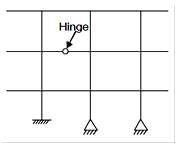
Structural failures considered in the mechanistic method of bituminous pavement design are
Which one of the options contains ONLY primary air pollutants?
The following inequality is true for all x close to 0.

What is the value of 
The velocity field in a flow system is given by v = 2i + (x + y)j + (xyz)k. The acceleration of the fluid at (1, 1, 2) is
A steel column is restrained against both translation and rotation at one end and is restrained only against rotation but free to translate at the other end. Theoretical and design (IS: 800 – 2007) values, respectively, of effective length factor of the column are
Euclindean norm (length) of the vector [4 –2 – 6]T is
An inflow hydrograph is routed through a reservoir to produce an outflow hydrograph. The peak flow of the inflow hydrograph is PI and the time of occurrence of the peak is tI. The peak flow of the outflow hydrograph is P0 and the time of occurance of the peak is t0. Which one of the following statements is correct?
Construction of a new building founded on a clayey soil was completed in January 2010. In January 2014, the average consolidation settlement of the foundation in clay was recorded as 10 mm. The ultimate consolidation settlement was estimated in design as 40 mm. Considering double drainage to occur at the clayey soil site, the expected consolidation settlement in January 2019 (in mm, round off to the nearest integer) will be _____________
The notation “SC” as per Indian standard Soil Classification System refers to





